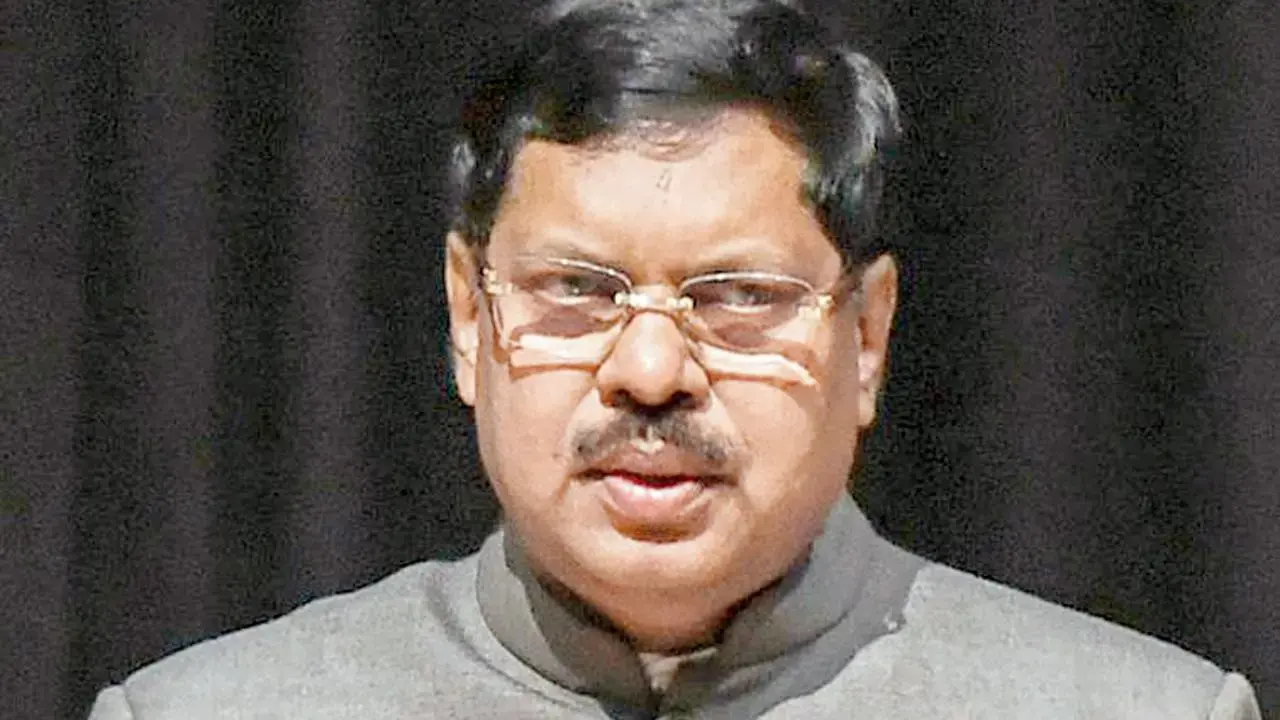CJI Gavai speaking at Oxford Union emphasised that the constitutional changes demonstrates the its role in affirming that the untouchables belong, that they can speak for themselves, and that they have an equal place in every sphere of society and power

Chief Justice of India (CJI) B.R. Gavai. File pic.
Chief Justice of India (CJI) B.R. Gavai recently delivered a powerful address at the Oxford Union on the theme 'From Representation to Realisation: Embodying the Constitution's Promise'.
Speaking on Tuesday, CJI Gavai reflected on the profound transformation brought about by the Indian Constitution. He siad, "Many decades ago, millions of citizens of India were called 'untouchables'. They were told they were impure. They were told that they did not belong. They were told that they could not speak for themselves. But here we are today, where a person belonging to those very people is speaking openly, as the holder of the highest office in the judiciary of the country."
He emphasised that this demonstrates the Constitution's role in affirming that "they belong, that they can speak for themselves, and that they have an equal place in every sphere of society and power."
The CJI shared his personal journey, stating, "In my own journey, from a municipal school to the Office of the Chief Justice of India, it has been a guiding force." He described the Constitution not merely as a legal or political framework for India's most vulnerable citizens, but as "a feeling, a lifeline, a quiet revolution etched in ink."
He further elaborated that the Constitution is a social document that confronts the harsh realities of caste, poverty, exclusion, and injustice. It does not shy away from acknowledging deep-seated inequality but actively intervenes to "rewrite the script, to recalibrate power, and to restore dignity."
CJI Gavai highlighted that the Constitution embodies the voices of those previously unheard and envisions a nation where equality is not just a promise but a pursuit. He noted that it compels the State not only to protect rights but also to actively uplift, affirm, and repair.
A crucial and often overlooked aspect, according to the CJI, is that during the Constitution's drafting, many of India's most vulnerable social groups were not just subjects of constitutional concern, but active participants in its creation.
He cited the presence of "Dalits and Adivasis, to women, minorities, persons with disabilities, and even those once unjustly branded as 'criminal tribes'" in the Constituent Assembly as a collective demand for justice.
He specifically acknowledged Dr. B.R. Ambedkar, Chairman of the Drafting Committee, for his foresight and pivotal role in embedding safeguards and affirmative measures into the Constitution, particularly the principle of representation.
CJI Gavai explained that Ambedkar believed democracy in an unequal society could only survive if power was distributed among communities, not just institutions, making representation a mechanism for redistributing power among social groups historically denied a share.
(With inputs from ANI)
 Subscribe today by clicking the link and stay updated with the latest news!" Click here!
Subscribe today by clicking the link and stay updated with the latest news!" Click here!








